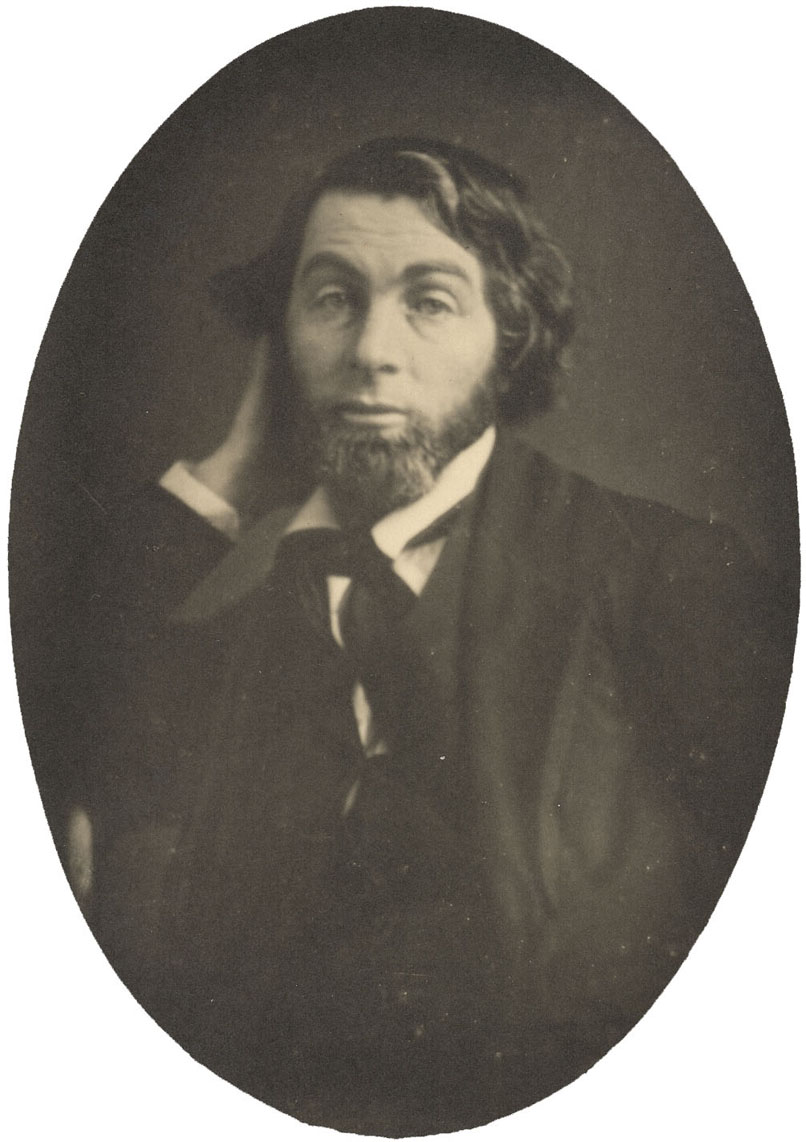By the time he published Leaves of Grass in 1855, Walt Whitman had worked for years as a journalist, publishing thousands of newspaper pieces. The following review appeared in the November 29, 1845 edition of Broadway Journal, along with a note from the journal’s editor, below.
Great is the power of Music over a people! As for us of America, we have long enough followed obedient and child-like in the track of the Old World. We have received her tenors and her buffos, her operatic troupes and her vocalists, of all grades and complexions; listened to and applauded the songs made for a different state of society—made, perhaps, by royal genius, but made to please royal ears likewise; and it is time that such listening and receiving should cease. The subtlest spirit of a nation is expressed through its music—and the music acts reciprocally upon the nation’s very soul. Its effects may not be seen in a day, or a year, and yet these effects are potent invisibly. They enter into religious feelings—they tinge the manners and morals—they are active even in the choice of legislators and high magistrates. Tariffs can be varied to fit circumstances—bad laws obliterated and good ones formed—those enactments which relate to commerce or national policy, built up or taken away, stretched or contracted, to suit the will of the government for the time being. But no human power can thoroughly suppress the spirit which lives in national lyrics, and sounds in the favorite melodies sung by high and low.
There are two kinds of singing—heart-singing and art-singing. That which touches the souls and sympathies of other communities may have no effect here—unless it appeals to the throbbings of the great heart of humanity itself—pictures love, hope, or mirth in their comprehensive aspect. But nearly every nation has its peculiarities and its idioms, which make its best intellectual efforts dearest to itself alone, so that hardly any thing which comes to us in the music and songs of the Old World, is strictly good and fitting to our own nation.
With all honor and glory to the land of the olive and the vine, fair-skied Italy—with no turning up of noses at Germany, France, or England—we humbly demand whether we have not run after their beauties long enough.
“At last we have found it!” exclaimed we, some nights since, at the conclusion of the performance by the Cheney Family, in Niblo’s Saloon. At last we have found, and heard, and seen something original and beautiful in the way of American musical execution. Never having been present at any of the Hutchinsons’ Concerts, (the Cheneys, we are told, are after the same token,) the elegant simplicity of this style took us completely by surprise, and our gratification was inexpressible. This, said we in our heart, is the true method which must become popular in the United States—which must supplant the stale, second-hand, foreign method, with its flourishes, its ridiculous sentimentality, its anti-republican spirit, and its sycophantic influence, tainting the young taste of the republic.
The Cheney young men are such brown-faced, stout-shouldered fellows as you will see in almost any American church, in a country village, of a Sunday. The girl is strangely simple, even awkward, in her ways. Or it may possibly be that she disdains the usual clap-trap of smiles, hand-kissing, and dancing-school bends. To our taste, there is something refreshing about all this. We are absolutely sick to nausea of the patent-leather, curled-hair, “japonicadom” style. The Cheneys are as much ahead of it as real teeth are ahead of artificial ones. We beg these young Yankees to keep their manners plain alway. The sight of them, as they are, puts one in mind of health and fresh air in the country, at sunrise—the dewy, earthy fragrance that comes up then in the moisture, and touches the nostrils more gratefully than all the perfumes of the most ingenious chemist.
These hints we throw out rather as suggestive of a train of thought to other and more deliberate thinkers than we—and not as the criticisms of a musical connoisseur. If they have pith in them, we have not much doubt others will carry them out. If not, we at least know they are written in that true wish benefitting the subject spoken of, which should characterize all such essays.
* The author desires us to say, for him, that he pretends to no scientific knowledge of music. He merely claims to appreciate so much of it (a sadly disdained department, just now) as affects, in the language of the deacons, “the natural heart of man.” It is scarcely necessary to add that we agree with our correspondent throughout. Ed. B. J.
Advertisement
Drawn from Walt Whitman’s Selected Journalism, published this month by University of Iowa Press. “The Old Granite State,” performed by the Eastman Chorale, was written by the Hutchinson Singers, a group that Whitman praised, along with the Cheney Family, as one of the “American vocal bands that in true music really surpass almost any of the vaunted artificial performers from abroad.”



